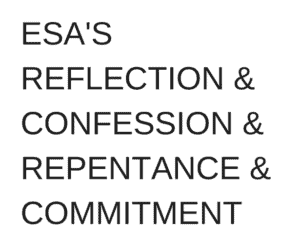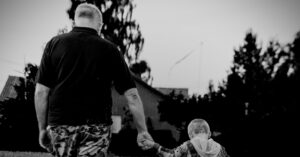 Originally published Jan 26, 2018
Originally published Jan 26, 2018
Remember that 1989 Spike Lee movie you’re supposed to like? Spike Lee plays the role of Mookie, an African American man in Brooklyn who works at a local pizza shop, proudly owned by an Italian American and his two sons. It represents a tenuous stability: the owner admits that much of his success is owed to the loyalty of customers and hard work of employees of all backgrounds.
Nevertheless, over the course of the film, tensions rise between the various ethnic groups in the neighborhood as they struggle to make ends meet, and between the people and the police who are distrusted for their bias and abuse of power. These tensions escalate to a street riot, during which police strangle and kill a black man, Radio Raheem. Outraged at the injustice, Mookie grabs a trash can and throws it through his employer’s window, and rioters burn the shop to the ground. So a white man who seemed like a father figure to Mookie has his livelihood destroyed in one careless act of violence, in retaliation for a crime he did not commit.
This scene has always haunted me. I couldn’t understand why Spike Lee wrote it that way. I knew he wanted me to side with Mookie, but I just couldn’t. I knew his actions were wrong. They weren’t helpful. They weren’t going to bring Radio Raheem back. And they threatened to increase racial tensions and play into stereotypes of black anger and violence.
Had my position as an educated, upwardly mobile black man already dulled my empathy?
I wasn’t the only one to miss the point. To hear Spike Lee tell it, only white people ask that question—an explanation I always found patronizing and irritating. Lee went on to explain that black people intuitively understand that the value of a black man’s life exceeds that of a white man’s property, whereas white people will have their outrage over Raheem’s death eclipsed by the outrage over the destroyed pizza shop. This, Lee argues, is a key feature of how white people see the world.
All these years later, I still don’t agree with Lee. He may have gotten the phenomenon right, but he got the villain wrong. The stronger predictor of misallocated outrage and failed empathy is socioeconomic status, regardless of any correlation it may have to race. Conventional wisdom assumes that wealth or power can corrupt moral reasoning. But is that true? Had my position as an educated, upwardly mobile black man already dulled my empathy?
In 2013, Psychology Today published an article called The Neuroscience of Empathy. The article cited a study published by the Journal of Neuroscience, in which researchers from the Max Planck Institute identified an area of the human brain called the right supramarginal gyrus, responsible for helping us to distinguish our own emotional state from that of other people. At a neurobiological level, without a properly functioning supramarginal gyrus the human brain has difficulty “putting itself in someone else’s shoes.”
To test the role of the supramarginal gyrus in a laboratory, the Max Planck researchers exposed typically-functioning participants, who worked in teams of two, to either pleasant or unpleasant simultaneous visual and tactile stimuli. For example, one participant was shown a picture of maggots and had slime placed on her hand, while another participant saw a picture of a puppy and could feel soft, fleecy fur on her skin. The two participants were then asked to evaluate their own emotions compared to those of their partners. Major differences arose when one partner was confronted with pleasant stimuli and the other with unpleasant ones. The participants who were feeling good themselves assessed their partners’ negative experiences as less severe than they actually were. (To be clear, the biases went both ways.) One question raised by the study is: do people who live in constant comfort have fundamental, even neurobiological challenges empathizing with those who don’t? In the real world, the poor lacking empathy towards the rich does not have the same impact on the rich as the rich lacking empathy towards the poor.
Do people who live in constant comfort have fundamental, even neurobiological challenges empathizing with those who don’t?
In January, the Oxford Committee for Famine Relief (“Oxfam”) released a report in which it concluded, among other things, that the top 1% of the world’s population owned 82% of the wealth, that roughly half of the world’s wealth was controlled by approximately eight people, and that this inequality is increasing. Questions arose as to the methodology and definitions used, and the report quickly became the subject of debate among free market and social justice advocates. In the end, though, most people concede that that there are still those among us living in poverty despite generally positive trends in global economic development.
Economic issues are immensely complex. Most of us have little to contribute to the technical aspects of that discussion, whether at the World Economic Forum in Davos or in our basement. So my hope is that the Christian church would rise above partisanship and instead be motivated by concern for our neighbor at every turn, regardless of background or status. Other institutions can give weight to questions of pragmatism or expediency. The Christian vision is simpler: unwavering commitment to the vulnerable and suffering among us.
But let’s start small: if we can’t Do The Right Thing, then maybe we can Have The Right Feelings. Luke 10:33 tells of a social pariah helping the victim of a beating: “But a Samaritan (immigrant, white nationalist, liberal SJW, Wall Street banker…insert your undesirable here), as he traveled, came where the (injured) man was; and when he saw him, he took pity on him.”
That’s it. See the injured person. See the bruises and the blood. Take pity. Don’t hate the rich. Love the poor. Feel for the vulnerable. Don’t rush to indict or defend a politician. Don’t feel outrage at fellow Christians for being too liberal or too conservative. Feel outrage at the pain of others.
Healing and serving is who we are as followers of Jesus. The Gospel we have been taught is one of sacrifice, grace and compassion. We don’t fight think tanks on policy. We see wounds and we help.
Alex Pabellon is a Certified Public Accountant, member of the Pennsylvania Institute of CPAs, and manager of accounting policy and SEC reporting at Customers Bancorp. He writes on financial literacy, banking, retirement and other topics serving the public interest. He also serves as a worship leader at Zion Mennonite Church in Birdsboro, PA.



One Response
Thankful for this.